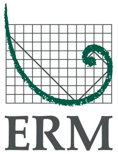In accordance with our commitment to continuous improvement, over the past year we evaluated the effectiveness of our management approach to governance by conducting a formal operational risk assessment that addressed a full range of issues, including safety, our people, subcontractor management and project management, among others.
The results of the assessment were incorporated into a risk register. Action items to reduce operational risk were identified and approved by the Executive Committee and the Board as part of the annual three-year strategic growth plan and budget, and these are reviewed on an ongoing basis.
We exercise judgment with respect to the clients and third parties with which we engage and the types of work we undertake. We will not work with clients or subcontractors who do not share our commitment to high ethical standards; we have over time turned down project opportunities because of concerns involving human rights violations and other ethical issues.
We scrutinize opportunities and projects carefully before proceeding, and we reserve the right to withdraw from a project if business conduct and ethics concerns arise.
ERM has a well-established project governance process that enables us to review and identify such risks. We use a customer relationship management (CRM) system in which all new project opportunities are entered, and our opportunity management process contains a number of flags and triggers (e.g., location, reputation, value, etc.). These triggers reflect the need for different levels of assessment of these risks. Our Project Liability Assessment Process (PLAN) is applied to any opportunity and client that triggers these pre-identified risks. All new clients are also subject to a formal credit risk assessment.
We apply similar rigor to the activities of the ERM Foundation and are careful to avoid any potential ethical or compliance concerns associated with those organizations we support.
Our systems enable ERM employees to confirm quickly that third parties are not on government watch lists for corruption, bribery or human rights violations. We have committed to following the trade sanctions established by the European Union and the United States, as well as the United Nations. In addition:
- We continue to conduct geographic corruption and modern slavery risk assessments, focused on projects in high-risk areas.
- We track compliance with mandatory employee training. Because it is imperative that employees are aware of our expectations for business conduct and ethics, we have included new starters and refresher training for our employees in our FY21 sustainability performance targets.
